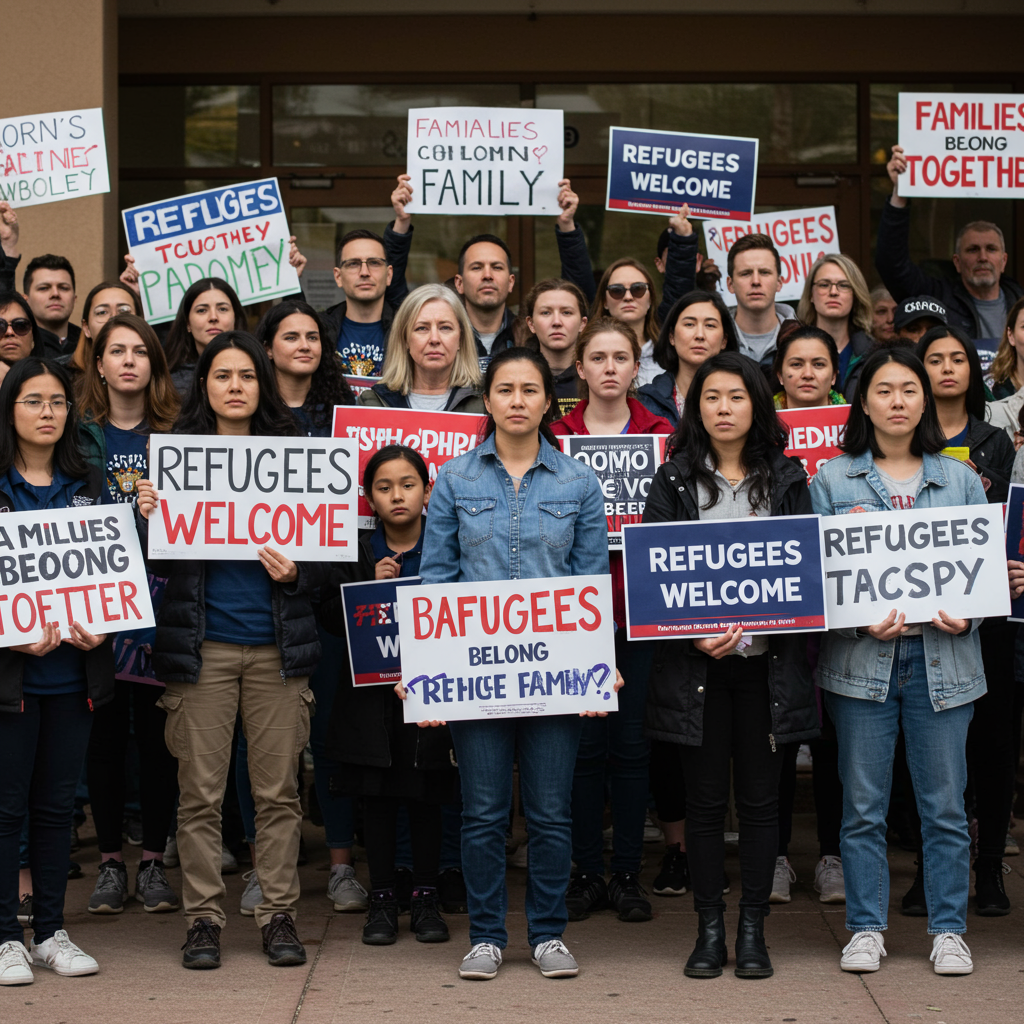PHOENIX, AZ – Refugee advocates across Arizona are raising urgent concerns regarding the impacts of a recent travel ban issued by former President Donald Trump, asserting the policy is causing significant distress and preventing vulnerable families from reuniting in the United States.
Advocates describe the situation as one marked by “chaos and devastation,” particularly for families who have been working through lengthy immigration processes and were close to securing visas for reunification. The ban applies to citizens from a list of countries including Afghanistan, Chad, Congo (Republic of), Equatorial Guinea, Eritrea, Haiti, Iran, Libya, Myanmar, Somalia, Sudan, and Yemen. It also imposes heightened restrictions on individuals from Burundi, Cuba, Laos, Sierra Leone, Togo, Turkmenistan, and Venezuelans outside the U.S. without valid visas.
While previously issued visas are not revoked, many individuals who were just steps away from joining family members already settled in the U.S. are now barred. Advocates argue this breaks promises made to individuals, some of whom aided U.S. efforts overseas.
Impact on Afghan Allies
Julianna Larsen, CEO of the Arizona Refugee Center, highlights the profound impact on families connected to the Operation Allies Welcome (OAW) effort. More than 80 OAW-related families have resettled in Arizona, but the travel ban is creating new obstacles.
Larsen notes that potentially “over 20,000 men and women who helped the United States military in Afghanistan had to flee without their families,” including immediate spouses and children. Many are now unable to be reunited with loved ones already in the U.S.
She shared the story of Abdul, a father who arrived in 2021 through OAW. While most of his family has joined him, his eldest son remains overseas. According to Larsen, Afghan males over the age of 14 or 15 are often placed into administrative processing, a delay that has significantly worsened in recent months. Even if his visa is eventually approved, the current restrictions could bar him from entering the U.S. for years, preventing his reunification with his family.
A Different View on National Security
The Trump administration has stated that the travel ban is aimed at protecting national security as part of new immigration enforcement measures. However, advocates like Larsen strongly disagree with this rationale.
Larsen argues that the ban actively harms national security by betraying the trust of those who assisted the U.S. military. “We went into Afghanistan over 20 years ago, we asked people to help us in the fight against terrorism and we made promises,” she stated. She points out that navigating separate processes like Special Immigrant Visas often forces individuals to start over, adding further delays and uncertainty.
Broader Concerns and the Human Cost
The concerns voiced by Arizona advocates echo wider anxieties about the human toll of restrictive U.S. immigration policies, which have historically resulted in severe trauma for families. Past implementations of “zero tolerance” approaches at the border, for instance, led to the widely criticized separation of parents and children, a policy documented to have ignored warnings about psychological harm and sometimes actively hindered family reunification efforts. The profound psychological distress experienced by children and parents alike, and the challenges faced by aid workers scrambling to manage the crisis, underscore the devastating impact policies preventing family unity can have.
While the current travel ban specifically targets certain countries, the anxieties it creates about family separation and denied opportunities are felt across diverse migrant communities. Groups including Indigenous immigrants from Central and South America, many of whom are fleeing persecution and conflict rooted partly in historical U.S. foreign policy, also face unique challenges within the U.S. immigration system. These challenges can include systemic barriers like a lack of adequate language services for non-Spanish speakers and the potential for policies that do not recognize or respect distinct cultural identities or tribal rights.
Advocates nationwide remain vigilant about the potential for future immigration policies to further restrict pathways to safety and reunification for various vulnerable populations. For Arizona advocates, the focus is immediate: urging a reconsideration of the travel ban’s impact on refugee families who have already sacrificed immensely and hold legitimate hopes of building a new life together in the United States.
The fight for many, regardless of their origin or the specific policy impacting them, remains fundamentally centered on the right of families to exist and thrive together free from persecution and arbitrary separation.


